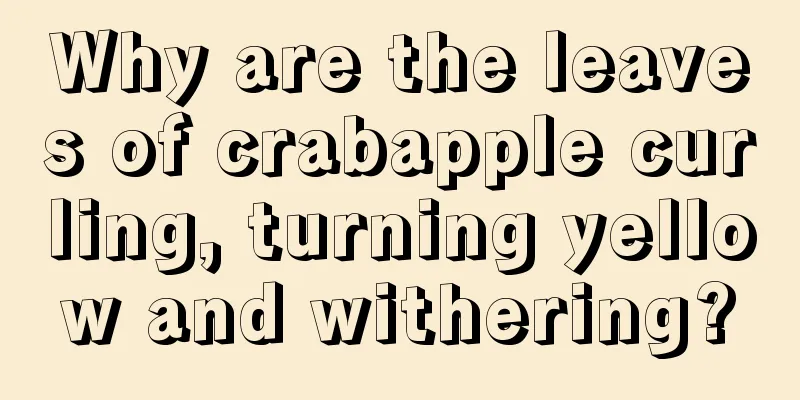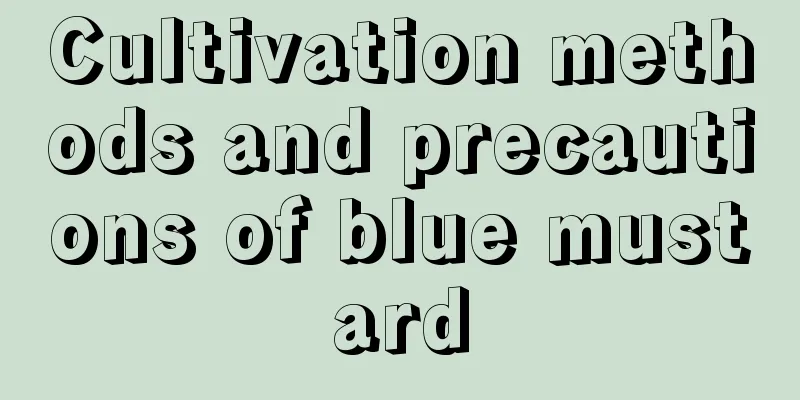What kind of fertilizer should be used for plum blossom fertilization? When and how to fertilize plum blossom

1. Base fertilizerWhen planting plum blossoms, sufficient base fertilizer needs to be applied, and base fertilizer should also be applied to the soil after the flowers fade. Usually, the fertilizer used is decomposed manure residue. This kind of fertilizer has a long effective period, can provide nutrients continuously, is very helpful for plant growth, and is not easy to cause fertilizer damage. Usually, base fertilizer is applied to the bottom of the pot and covered with soil so that the fertility can be slowly dissipated. 2. Topdressing1. Topdressing in spring: Plum blossoms need appropriate topdressing in spring, which is usually applied when the branches and leaves are growing, and cake fertilizer is used. Cake fertilizer contains a lot of nitrogen, which is very helpful for the growth of leaves and branches. It is generally applied once every half a month, and pay attention to controlling the concentration. If too much cake fertilizer is used, in addition to causing fertilizer damage, it will also cause the plant to grow too tall and affect its normal development. 2. Topdressing in summer: The flower bud differentiation period of plum blossoms is in summer, and fertilizer is usually applied in June. The fertilizer at this time must ensure a balanced nutrient content. In addition to cake fertilizer, an appropriate amount of bone meal needs to be added. This can supplement phosphorus and potassium, which will help the differentiation of flower buds. In order to allow better absorption of nutrients, it is generally necessary to water the plants appropriately after fertilizing. 3. Autumn topdressing: By October, the growth of the plant's branches and leaves has basically stopped, and it is meaningless to continue to supplement nitrogen fertilizer. At this time, only bone meal fertilizer can be applied. The increase of phosphorus and potassium elements is also helpful for the plant to survive the winter. Generally, it is applied once every half a month. 4. Foliar fertilizer: The above three fertilizers are applied to the soil. In addition, you can also apply some foliar fertilizer. Foliar fertilizer is generally water-soluble fertilizer, which can be sprayed on the leaves after diluting it with water. Phosphorus and potassium fertilizers are usually used, and other trace elements can also be supplemented. |
>>: Can lotus bloom in winter? How to care for it in winter
Recommend
How to prune lucky bamboo
1. Prune yellow leaves During its growth process,...
What are the requirements of daffodils for their growing environment?
climate The climate should be humid, the environm...
Why can't Clivia be given as a gift?
1. Reasons why you can’t send it at will (1) Acco...
Can roses be planted outside your home?
Can roses be planted at the doorstep? Roses can b...
Is saffron potted plant easy to grow? How to grow saffron potted plant at home
Saffron, also known as saffron, crocus, and tear ...
Can purple bamboo plum be grown in water?
1. Prepare the container Get a container of suita...
Can ginkgo trees be potted?
Can Ginkgo trees be potted? Ginkgo trees can be p...
How to propagate Schefflera and what to pay attention to
Schefflera propagation method There are two ways ...
How to propagate garlic and what kind of propagation method is it?
Garlic propagation method Garlic is generally pro...
Is a large pot suitable for hibiscus?
Should I use a large or small pot for hibiscus? H...
How to grow a lucky tree so that it will flourish
1. Environment If you want to grow a plant well, ...
How to propagate Calceolaria
Seed propagation The best time to propagate Calce...
Don’t clean up the dead leaves of succulents? It would be bad if pests appeared
Dry leaves explained 1. For plants like Sedum and...
Can the heartleaf vine be cut off if it is too long?
1. Can it be cut off? If the cultivated heartleaf...
How to Plant Mint Seeds
Mint Seeds Introduction Mint seeds grow in the fr...









